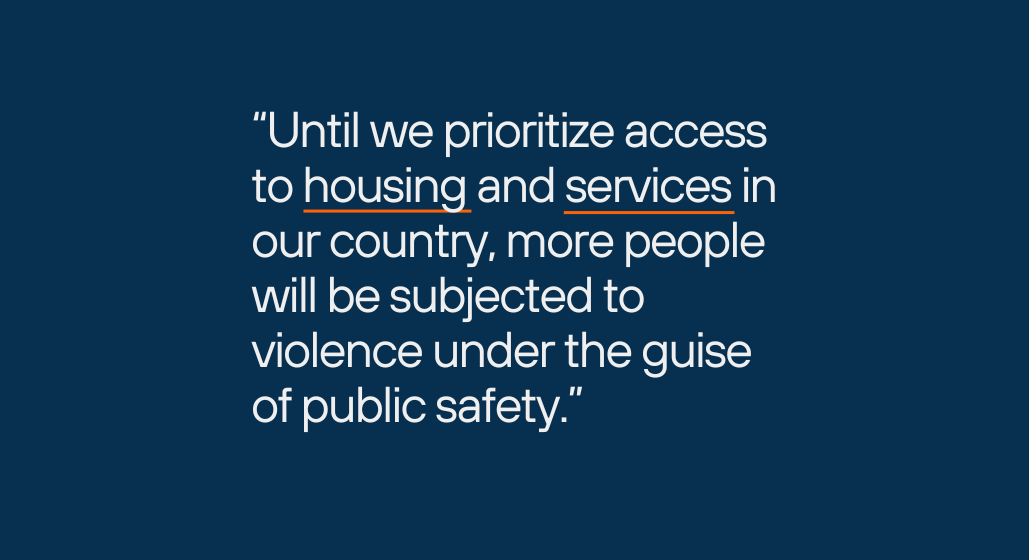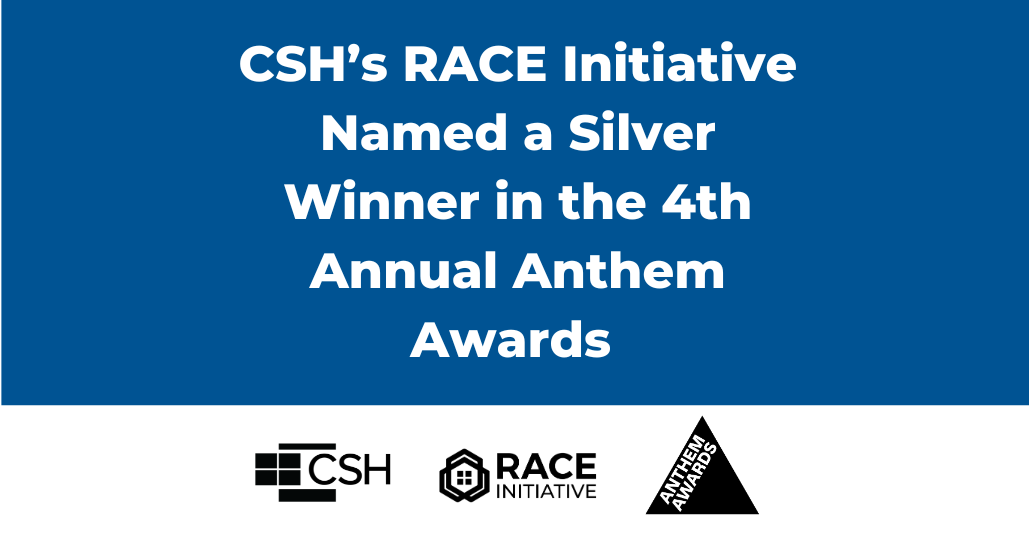
CSH Summit Discussion Highlights Cross-Sector Approach to Aging in Supportive Housing
Last month, experts in healthcare, supportive housing, philanthropy, policy, systems change and research came together as part of CSH’s fourth annual national Summit to offer perspectives on the current state of an aging population in supportive housing.
Emily Martiniuk, a supportive housing resident and graduate of the CSH SpeakUp!program, kicked off a dynamic discussion by describing how, on the brink of retirement, her life suddenly turned upside down when she found herself without a home. She urged the audience to consider: “If homelessness happened to you, what would you want it to look like?”
Together with an active audience, experts in the field like Dr. Margot Kushel of University of California San Francisco (UCSF), Thomas Hart from United Health Care, Andy Perry and Pascale Leone from CSH, Erika Hartman from LA’s Downtown Women’s Center, and Colleen Bain from National Church Residences grappled with this question and sought to identify not just the major challenges facing seniors struggling with housing insecurity, but also creative solutions that leverage cross-sector resources and momentum.
Acknowledging that demographic shifts track toward an older supportive housing tenancy that faces complex behavioral and physical health challenges, the group stressed the need for new, bold approaches to serving older adults. However, effectively leveraging cross-sector resources and capitalizing on momentum will require careful, intentional attention to four key themes:
Increased Understanding of the Population
Identifying the problem is the first step to solving it. Obtaining concrete data on the size and characteristics of the population is crucial to resource management. An evidence base also will help make the case for additional resources and encourage traditionally siloed sectors, such as healthcare and housing, to quantify the overlap in their populations and the potential cost-savings of joint initiatives such as value-based payment arrangements.
Focus on Equity
Members of the audience raised the importance of not just developing new programs but carefully measuring who gets access to them and why. Are there disparities in terms of race, ability, ethnicity, age, or gender and sexual identity? Are the models designed to assist, such as Coordinated Entry, using eligibility criteria that disproportionately disfavor older adults or members of other groups? Stakeholders need to carefully evaluate not just the intent but the impact of their mission.
Staff Training and Capacity Building
Supportive housing sites face a changing tenancy, and with it, a need for staff trained in issues ranging from dementia care to limited mobility, to elder care law and end of life planning. Buildings need to be designed to accommodate the physical needs of older adults to be adaptable to promote healthy aging in place. Trainings on everything from best practices for care coordination to staffing plans and enhanced service models will be crucial in equipping supportive housing to meet older tenants’ needs.
Partnerships
Innovative partnerships are key to meeting the interrelated health, housing, social and long-term needs of aging adults. Recent partnerships tackling older adults’ health and housing needs, such as collaborations between health centers and PACE* programs and a joint initiative between the Texas Medicaid Agency and Housing Finance Agency, are a promising start.
All participants agreed recent funding initiatives and innovative projects across the country, combined with a growing determination in the healthcare community to confront social determinants of health, offer promise of a supportive housing industry better equipped to meet the growing demand for units and services.
*Program of All-Inclusive Care for the Elderly
A special thanks to the AARP Foundation for sponsoring this event.




